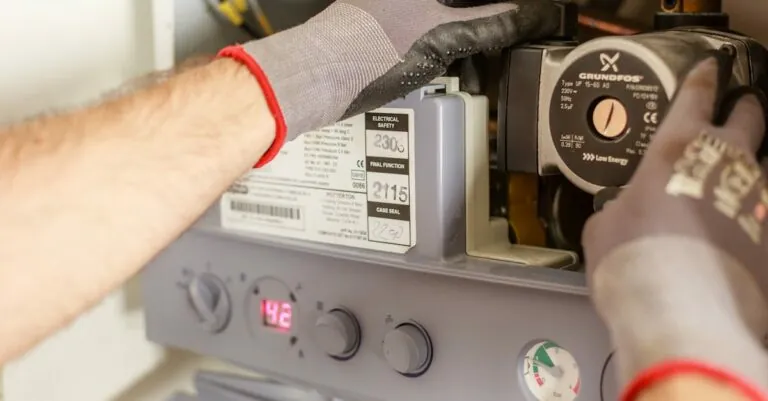Freelancing can feel like a rollercoaster ride—thrilling highs and stomach-churning lows. But while the freedom to work in pajamas is a dream come true, managing finances can turn into a nightmare faster than you can say “tax season.” Understanding freelancer financials isn’t just about crunching numbers; it’s about securing a stable future while enjoying the perks of independence.
Table of Contents
ToggleUnderstanding Freelancer Financials
Freelancers face unique financial responsibilities that require attention. Managing finances plays a crucial role in maintaining a sustainable freelance career.
Importance of Managing Finances
Staying on top of finances ensures freelancers can cover expenses consistently. Effective budgeting helps allocate funds for taxes, insurance, and savings. Planning for irregular income is critical, as freelancing often results in fluctuating earnings. Setting financial goals empowers freelancers to save for emergencies or investments. Regularly reviewing income and expenditures fosters better decision-making, leading to enhanced financial stability.
Common Financial Challenges for Freelancers
Freelancers encounter several financial obstacles that can hinder their success. Irregular cash flow can make it difficult to meet monthly obligations. Many struggle with setting aside sufficient funds for taxes, increasing the risk of penalties. Without employer benefits, freelancers face additional costs for health insurance and retirement savings. Lack of a steady paycheck can lead to difficulties in securing loans or credit. Understanding these challenges is essential for developing strategies to mitigate risks and improve overall financial health.
Budgeting for Freelancers

Freelancers face distinct financial challenges. Effective budgeting becomes critical for maintaining financial health and stability.
Creating a Realistic Budget
Creating a realistic budget requires listing all potential income sources. Freelancers should determine their average monthly earnings based on past projects. It’s essential to account for all expenses such as software subscriptions, marketing costs, and office supplies. Allocating specific amounts for taxes ensures there’s no surprise bill at tax time. Setting aside 20-30% of income for taxes is advisable. Additionally, including an emergency fund item helps cover unexpected expenses. Reviewing and adjusting the budget monthly keeps it relevant and functional as income fluctuates.
Tracking Income and Expenses
Tracking income and expenses is vital for freelancers. Utilizing tools like spreadsheets or apps simplifies this process. Recording every transaction helps ensure no income goes unnoticed. Categorizing expenses aids in understanding spending habits. Regular reviews of financial records highlight areas for improvement and identify unnecessary costs. Maintaining accurate records also streamlines tax preparation, minimizing the risk of errors. Establishing a consistent system encourages accountability and supports informed financial decisions. These tracking practices foster a clear overview of financial health, essential for long-term success.
Tax Obligations for Freelancers
Freelancers face unique tax obligations that require careful attention. Understanding these responsibilities ensures they maintain compliance and maximize their financial health.
Understanding Tax Deductions
Freelancers can claim various tax deductions, which directly reduce taxable income. Common deductions include home office expenses, equipment costs, and software subscriptions. Advertising and marketing expenses also qualify, allowing freelancers to invest in their business without tax penalties. Health insurance premiums count as deductible expenses, benefiting those who purchase their own coverage. Travel costs for business purposes, such as client meetings, remain deductible as well. By keeping accurate records of expenses, freelancers ensure they take full advantage of available deductions when filing taxes.
Filing Taxes as a Freelancer
Filing taxes as a freelancer involves several unique steps that differ from traditional employment. Freelancers typically report income on a Schedule C form, which details earnings and expenses. Estimated quarterly tax payments become essential, as freelancers do not have employers withholding taxes. Missing a quarterly deadline can result in penalties. Tracking income and expenses throughout the year simplifies the filing process, particularly using dedicated software or apps. Seeking assistance from a tax professional familiar with freelance work can offer valuable insights, especially regarding compliance with local and federal regulations.
Building an Emergency Fund
An emergency fund serves as a crucial financial safety net for freelancers. This fund helps mitigate the impact of unexpected expenses and income fluctuations.
Why an Emergency Fund is Essential
An emergency fund provides financial security during challenging times. Freelancers often face unpredictable cash flow; having savings allows them to manage periods of low income. It covers unexpected costs, such as medical emergencies or repairs, protecting against debt accumulation. Without this safety net, freelancers might struggle to maintain stability. Additionally, freelancers don’t access traditional employer benefits, making personal savings even more vital. Establishing an emergency fund promotes peace of mind, allowing freelancers to focus on their work without constant financial worry.
How to Start Saving
Starting an emergency fund begins with setting a clear savings goal. Aim for three to six months’ worth of expenses as a benchmark. Allocate a specific percentage of each paycheck to the fund; 10 to 20 percent often works well. Consider opening a separate savings account dedicated to this fund, ensuring it’s less accessible for day-to-day spending. Automating transfers from checking to savings can simplify the process. Tracking progress motivates continued saving, making it easier to reach financial goals. Regularly review the fund’s growth, adjusting contributions as income changes to maintain adequate savings.
Freelancers can thrive by mastering their financial landscape. By implementing effective budgeting strategies and understanding tax obligations, they can navigate the ups and downs of irregular income. Building an emergency fund offers a crucial layer of security during unpredictable times.
Utilizing tools for tracking finances and regularly reviewing records ensures freelancers stay informed about their financial health. This proactive approach not only simplifies tax preparation but also fosters a sense of control over their financial future. With careful planning and discipline, freelancers can enjoy the freedom of their lifestyle while securing their financial well-being.




